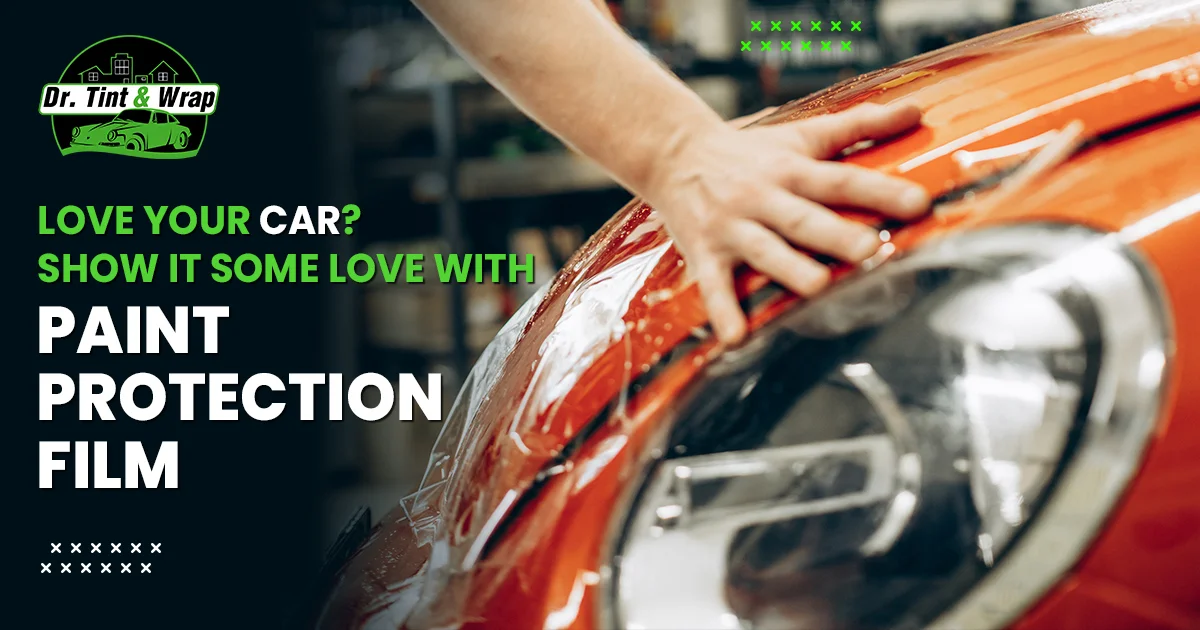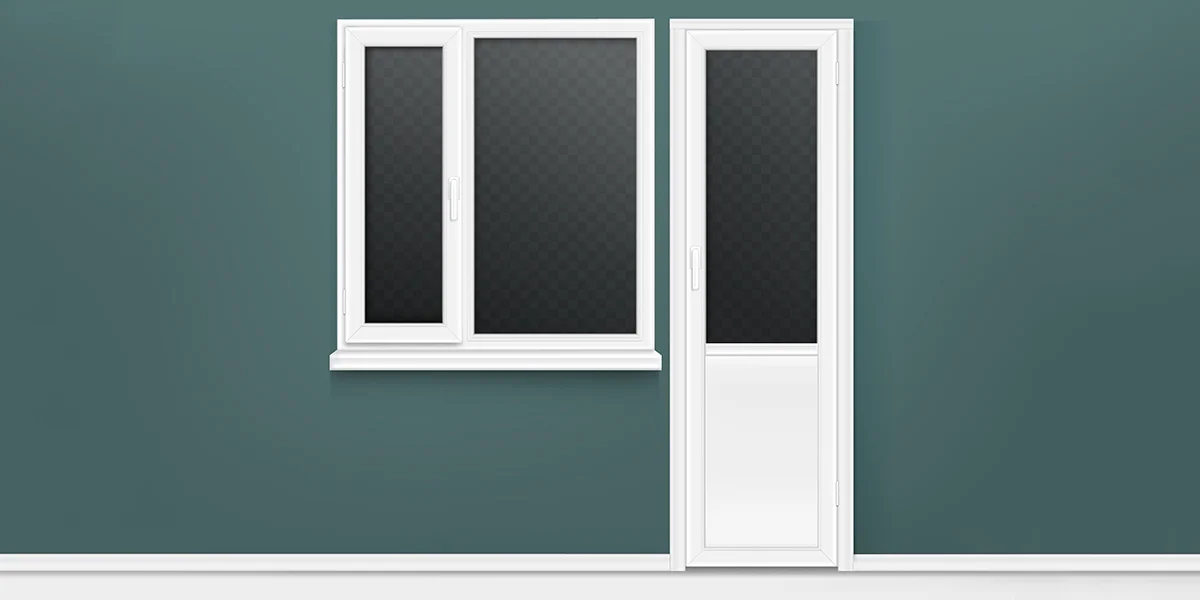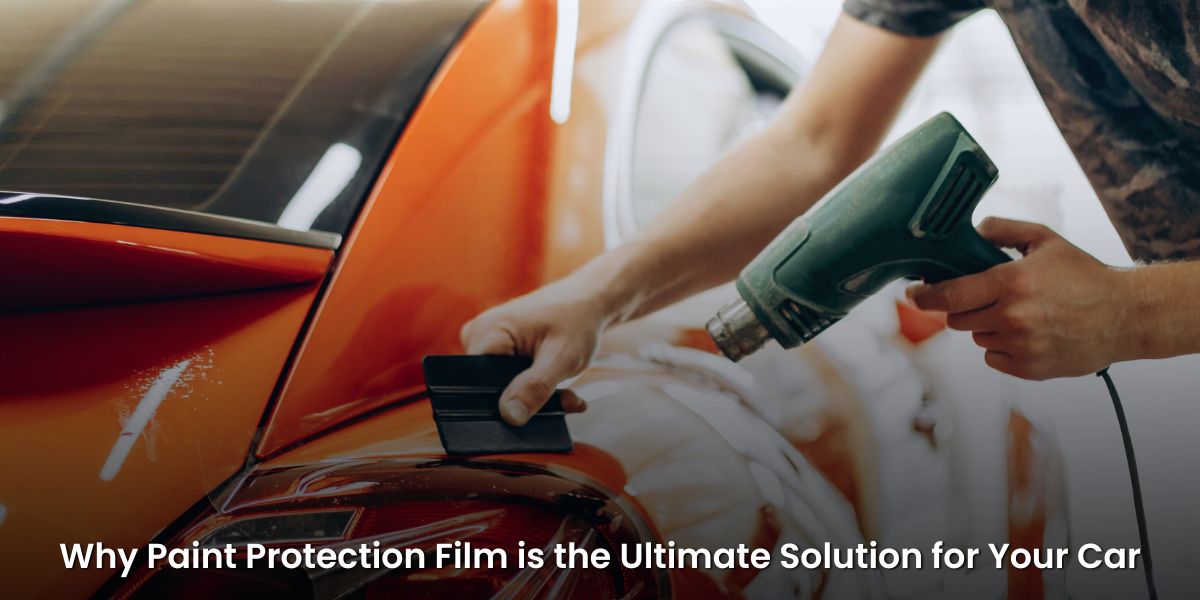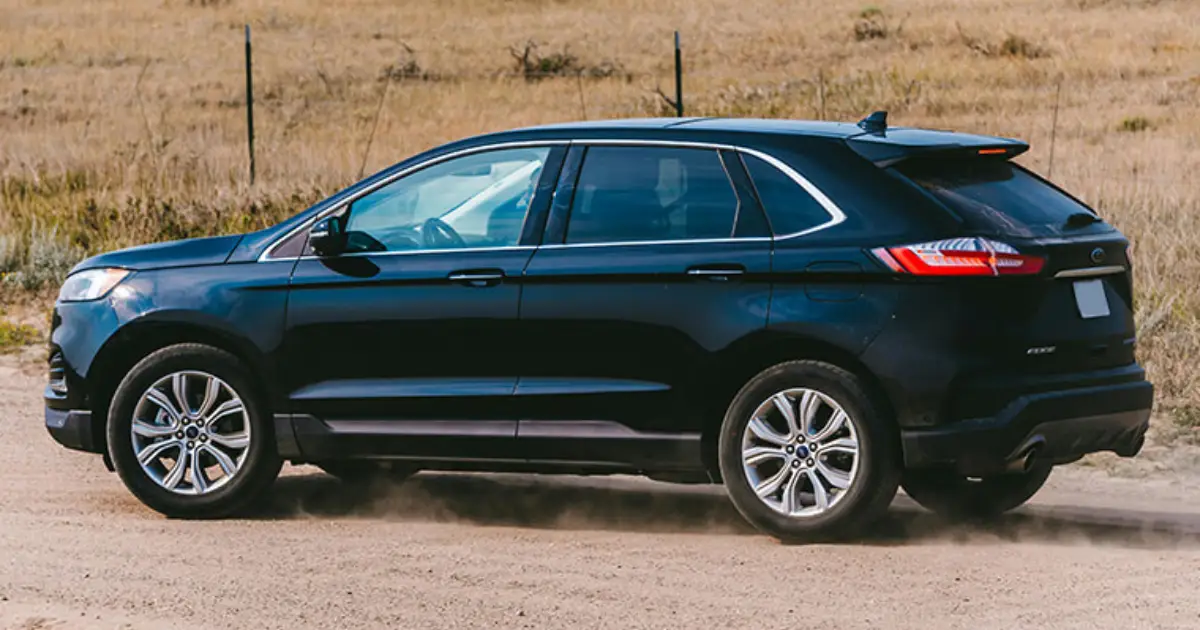
Love Your Car? Show It Some Love with Paint Protection Film
05 Sep 2023, By AdminOwning a car is more than just a mode of transportation – it's a reflection of your personality and a source of pride. Whether you have a brand-new luxury vehicle or a trusted companion that has seen its fair share of adventures, maintaining its appearance is essential. This is where Paint Protection Film (PPF) steps in as the modern-day armor for your beloved automobile.
The Evolution of Car Care
In the not-so-distant past, car owners relied on waxing and polishing to preserve the shine and finish of their vehicles. However, the automotive industry has seen remarkable advancements, and the introduction of Paint Protection Film has transformed the way we care for our cars.
Unveiling Paint Protection Film (PPF)
Paint Protection Film, often referred to as clear bra, is a transparent, ultra-thin polyurethane film that is meticulously applied to the exterior surfaces of a vehicle. This film acts as a shield, protecting the car's paintwork from various forms of damage that it encounters on the road.
Benefits of Paint Protection Film
1. Guard against Scratches and Chips: Gravel, rocks, road debris, and even minor accidental brushes can leave unsightly scratches and chips on your car's paint. PPF acts as a sacrificial layer, absorbing the impact and preventing these damages from reaching your car's finish.
2. Preserve the Paint's Gloss:PPF is designed to resist yellowing and clouding over time, ensuring that your car's shine remains intact for years. This allows you to retain that 'just out of the showroom' appearance, enhancing the resale value of your vehicle.
3. UV Radiation and Chemical Resistance: The sun's harmful UV rays and environmental contaminants can cause fading and damage to your car's paint. PPF offers protection against these elements, maintaining the vibrancy of your vehicle's color.
4. Self-Healing Properties: Some advanced PPF formulations have self-healing properties. Minor scratches and swirls on the film disappear when exposed to heat, maintaining a flawless appearance.
Installation Process
The installation of Paint Protection Film requires skill and precision. Trained professionals apply the film using a combination of heat and specialized tools to ensure a seamless and invisible finish. While it's possible to install PPF yourself, it's recommended to seek professional assistance for the best results.
Caring for Your Protected Car
Caring for a car with Paint Protection Film is relatively straightforward. Regular washing and detailing routines can be continued as usual. Opt for gentle cleaning products and techniques to ensure the longevity of the film's appearance.
In a world where appearances matter, Paint Protection Film emerges as a modern solution for car enthusiasts and everyday drivers alike. Its ability to shield against the rigors of the road while preserving your car's aesthetics is a testament to the advancements in automotive care. So, if you love your car, why not show it some love by investing in the ultimate form of protection – Paint Protection Film. Your car will thank you with a brilliant and ageless shine that turns heads wherever you go. Dr. Tint & Wrap is your premier destination for top-tier Paint Protection Film (PPF) services, ensuring your vehicle's pristine finish remains untouched by road hazards and wear. With expert installation and a commitment to preserving your car's allure, Dr. Tint & Wrap takes automotive protection to the next level.

The Pros and Cons of Tinted House Windows
05 Sep 2023, By AdminWhen it comes to enhancing your home's comfort, privacy, and energy efficiency, HOME WINDOW TINTING has become an increasingly popular option. Tinted windows offer a range of benefits, but they also come with some drawbacks. Let's explore the pros and cons of tinting your house windows.
Pros of Home Window Tinting
1. Energy Efficiency
One of the most significant advantages of HOME WINDOW TINTING is improved energy efficiency. Tinted windows can block a substantial amount of solar heat, reducing the need for air conditioning during hot summer months. This can lead to lower energy bills and a reduced carbon footprint.
2. UV Protection
Tinted windows provide excellent protection against harmful UV rays. Prolonged exposure to UV rays can cause furniture, carpets, and other interior items to fade over time. Window tinting helps preserve the vibrancy of your home’s interior by blocking up to 99% of UV radiation.
3. Enhanced Privacy
Privacy is a major concern for many homeowners, and HOME WINDOW TINTING can provide a simple solution. Tinted windows make it more difficult for people to see inside your home, giving you a greater sense of security and privacy without the need for heavy curtains or blinds.
4. Glare Reduction
Excessive glare from the sun can be a nuisance, especially when trying to watch TV or work on a computer. Tinted windows reduce glare, making your living spaces more comfortable and visually appealing.
5. Increased Safety
In the event of an accident or break-in, tinted windows can offer an additional layer of safety. The film used in tinting helps hold the glass together, preventing it from shattering into dangerous shards.
Cons of Home Window Tinting
1. Initial Cost
One of the main drawbacks of HOME WINDOW TINTING is the initial cost. Professional installation can be expensive, depending on the size and number of windows being tinted. However, many homeowners find that the long-term energy savings and other benefits outweigh this initial investment.
2. Potential Aesthetic Changes
While many people appreciate the sleek, modern look of tinted windows, others may find that they darken their home too much or alter the appearance of their exterior in an undesirable way. It's important to choose a tint that complements your home’s style and meets your personal preferences.
3. Reduced Natural Light
While tinted windows are great for reducing glare and blocking UV rays, they can also reduce the amount of natural light that enters your home. This can make your living spaces feel darker, which may not be ideal for everyone.
4. Installation Quality
The effectiveness of HOME WINDOW TINTING largely depends on the quality of the installation. Poorly installed tints can bubble, peel, or become discolored over time. It’s crucial to hire experienced professionals to ensure a smooth and long-lasting finish.
5. Maintenance
Maintaining tinted windows can require special care. Certain cleaning products and methods can damage the tint, so it’s essential to follow the manufacturer’s recommendations for cleaning and maintenance.
Conclusion
HOME WINDOW TINTING offers numerous benefits, from energy efficiency and UV protection to enhanced privacy and safety. However, it’s important to consider the potential downsides, such as the initial cost, aesthetic changes, reduced natural light, and maintenance requirements. By weighing these pros and cons, you can make an informed decision about whether window tinting is the right choice for your home.

Why Paint Protection Film is the Ultimate Solution for Your Car
05 Sep 2023, By AdminOwning a car is a significant investment, and maintaining its pristine condition is a priority for many car enthusiasts. With various options available for car paint protection, choosing the right one can be challenging. Among these options, Paint Protection Film (PPF) stands out as the best choice. Here’s why Paint Protection Film is the ultimate solution for car paint protection.
- 1.Superior Protection Against Physical Damage:
Paint Protection Film offers unmatched protection against physical damage. It acts as a robust shield against minor abrasions, stone chips, scratches, and other debris that can cause unsightly damage to your car’s paintwork. The film’s durable and flexible nature ensures that the underlying paint remains untouched, preserving the car’s appearance and value. - 2.UV Protection:
Prolonged exposure to ultraviolet (UV) rays can cause your car’s paint to fade and oxidize over time. Paint Protection Film provides an effective barrier against harmful UV rays, preserving the vibrant color and glossy finish of your vehicle. This UV resistance ensures that your car looks newer for longer, even when exposed to harsh sunlight. - 3.Chemical Resistance:
Paint Protection Film is designed to resist a wide range of chemicals that can harm your car’s paint. From bird droppings and bug splatter to acid rain and tree sap, PPF prevents these substances from coming into direct contact with the paint, reducing the risk of staining and etching. This chemical resistance makes it easier to clean your car and maintain its flawless appearance. - 4.Preservation of Original Paint:
Unlike traditional paint protection methods that involve applying additional layers of paint or coatings, the Paint Protection Film preserves the original paint of your car. This is particularly important for vintage or high-end vehicles where maintaining the factory paintwork is crucial for their value. PPF ensures that the original paint remains untouched and in mint condition. - 5.Clear and Invisible Protection:
One of the biggest advantages of Paint Protection Film is its clarity. When applied correctly, PPF is virtually invisible, allowing the original color and finish of your car to shine through without any distortion. This means you can enjoy the benefits of superior protection without compromising on the aesthetic appeal of your vehicle. - 6.Long-Lasting Durability:
Paint Protection Film is designed to last for several years, offering long-term protection for your car. High-quality PPF can endure the rigors of daily driving, harsh weather conditions, and regular washing without deteriorating. This longevity means fewer reapplications and lower maintenance costs over the lifetime of your vehicle. - 7.Ease of Maintenance:
Maintaining a car with Paint Protection Film is straightforward. The film’s smooth surface repels dirt, dust, and grime, making it easier to clean. Regular washing and occasional waxing are usually enough to keep the film and the underlying paint in excellent condition. This ease of maintenance saves time and effort, allowing you to enjoy your car more and worry less about its upkeep. - 8.Customizable and Versatile Application:
Paint Protection Film can be applied to various parts of your vehicle, from the hood and fenders to the mirrors and bumpers. It can be customized to cover specific areas prone to damage or applied to the entire vehicle for comprehensive protection. This versatility ensures that you can tailor the level of protection to suit your needs and preferences. - 9.Enhanced Resale Value:
Finally, using Paint Protection Film can enhance the resale value of your car. A well-maintained exterior free from chips, scratches, and stains is more attractive to potential buyers. The presence of PPF indicates that you have taken diligent care of your vehicle, which can justify a higher asking price and facilitate a quicker sale.
Conclusion
In summary, Paint Protection Film offers an array of benefits that make it the best choice for car paint protection. Its superior defense against physical and chemical damage, self-healing properties, UV protection, and long-lasting durability ensure that your car remains in pristine condition. With its clear and invisible application, ease of maintenance, and customizable coverage, PPF stands out as the ultimate solution for preserving the beauty and value of your vehicle. Investing in Paint Protection Film is a smart decision for any car owner who wants to keep their car looking new for years to come.

Stay Cool on the Road: How the Right Window Tinting Can Beat the Summer Heat
05 Sep 2023, By AdminWhether it is your first car or a second buy, a car is always a prized possession. Becoming a proud owner of a sophisticated vehicle is nothing less than an achievement. The story does not end here! If you are a car enthusiast, you will probably love to make some modifications to enhance its aesthetics and value.
Have you ever considered tinting your car windows? If not, this summer is absolutely the perfect time to get it done! Car window tinting is not only about making your car look classy and sophisticated, but it does have potential benefits.
Auto window tinting is becoming predominantly popular this season, and we have listed all the reasons, making it a worthy investment. Let’s check them out.
Auto Window Tinting: The Perfect Score!
Let’s face it; every car does not come from the showroom with tinted windows. Lucky those who already have it! Others have to live with the glaring sun on their face or get a customized service for tinted windows.
Now, why do we suggest you tint your car windows?
Glare Reduction- The most obvious reason to install a black or grey film on the windows is to reduce glare and enable a better of the road and the surroundings. Too much light makes you squint. As a result, you become prone to road accidents. So, whether it is the bright sunlight or the reflection from another vehicle, a tinted window curtails glare.
Block UV Rays- Driving on a hot sunny day means abundant exposure to UV rays. Despite applying sunscreens and sunblock creams, you still are exposed to the sun rays. What should you do? Tint the car windows and enjoy a more comfortable and safer drive! The tint films block UV rays, protecting you from their harmful effects.
Reduces Heat- Car tinting Tauranga is one of the best ways to keep off the heat while you are on the road! Your car’s interior feels cooler and more comfortable. Whether you have to park your car outside in the sun or have a long travel ahead, the interior of the car stays bracing.
Eliminate Health Risks - Often, prolonged driving in a very hot environment increases the risk of several health problems. Migraines, palpitation, and sun tanning are prevalent problems related to high temperatures. Sometimes, you may feel fatigued and exasperated when you have to deal with an uncomfortable surrounding.
Promote Energy Efficiency - What happens when you have a cooler temperature inside the car? The use of the air conditioning system becomes less. As a result, fuel consumption also decreases. It implies that you can save on your pockets! Isn’t it awesome?
Enhanced Protection - Driving a car means you are always susceptible to risks. In such an instance, if there is any physical impact on your car, even if the windows shatter, the glass pieces won’t fall apart. They will stick to the tint film. It saves the occupants inside from injuries.
Safeguard Upholstery - The cost to tint car windows is much less than your car upholstery! We mean that most tears and fading of the car upholstery happen due to excessive exposure to sunlight. Consider the seat covers or the synthetic seat belts, you will notice fading or tears at some point. You can considerably delay the process by tinting the windows and minimizing heat and light exposure.
Better Privacy - Undeniably, tinted windows provide better privacy than clear windows. Though you will be able to see the surroundings clearly, the ones outside will not get a transparent view of the interiors. Therefore, VIPs generally travel in cars with tinted windows.
Increased Comfort - When you have a cooler and more secure environment, naturally it boosts comfort. The heat does not burn your skin, the light stops glaring, and the ambience feels privatized- all of these contribute to enhanced comfort.
Boosted Aesthetics - Finally, how can anyone miss spotting a car with black windows? It looks highly sophisticated and classy. Anyone will turn their head to look at the car! So, elegance and class personified!
Key Takeaways
The benefit of car window tinting is enormous! From increased safety to enhanced aesthetic appeal, you have so many factors to count on! If window tinting was never on your list, we think now is the time you think over it and give it a try. The result will be marvellous!
